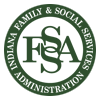How much time should online students spend learning?
After the state lost $47 million from two now-defunct virtual charter schools enrolling thousands of inactive students, Indiana lawmakers want to make sure online students are showing up.
A new proposal that sailed through the House last week would seek to define online attendance and add steep consequences for students and schools when those enrolled don’t spend enough time on schoolwork or take standardized tests.
“This kind of teaching can be very beneficial, but it’s not beneficial if the machine is never turned on and the student never participates,†said Rep. Ed DeLaney, D-Indianapolis.
State lawmakers have been walking a tightrope on virtual charter schools: In recent years, they have taken small steps to crack down on the publicly funded sector’s low academic results, while not wanting to impose too many regulations on what they see as an important school choice option for students struggling in brick-and-mortar settings.
But at the state’s remaining virtual charter schools, officials protested online education being painted with a broad brush because of the problems at Indiana Virtual School and Indiana Virtual Pathways Academy, which they say were isolated incidents of wrongdoing.
“It’s not what’s happening across the board. It’s just not,†said Chandre Sanchez, executive director of two virtual charter schools, Indiana Connections Academy and Indiana Connections Career Academy. “It feels like an over-reaction.â€
State and local oversight officials found last year that Indiana Virtual School and Indiana Virtual Pathways Academy took in about $47 million combined in state funding for thousands of students who weren’t actively attending the online schools. While claiming perfect attendance rates, the two schools over-reported enrollment by keeping on their rolls students who hadn’t logged in for months, students who had moved out of state, and even at least one student who had died.
School officials denied inflating enrollment, but the two troubled virtual charter schools closed in August under the weight of the scandal. The state recovered about $7 million before the closures.
Under last week’s proposal, if a virtual charter school student doesn’t participate enough or doesn’t take the state’s mandatory tests, that student will be barred from continuing to attend virtual charter schools and the school will lose funding for that student.
The two Connections schools, along with the virtual charter network that includes Hoosier Academy of Indianapolis and Insight School of Indiana, have slightly lower attendance rates than most brick-and-mortar schools — between 86% and 90%.
They follow the same state attendance requirements as other schools, officials say: 180 days of instruction, with five hours per day for elementary students and six hours per day for middle- and high-school students.
Test participation rates at those four virtual charter schools hover just under or at the state average. Getting students to show up for standardized tests is one of the toughest challenges virtual charter schools face, since they have to arrange test-taking sites across the state and sometimes provide transportation for students.
For 2017-18, the most recent state A-F grades available, Hoosier Academy and Insight received Cs. Connections had a D, and Connections Career Academy was not rated because that was its first year open. Another school in the Hoosier Academies network, Hoosier Academy Virtual Charter School, closed in 2018 after eight straight years of F grades.
Officials raised concerns that the proposed legislation would single out virtual charter schools — not applying the same consequences for truant students or students who miss state tests at brick-and-mortar schools or fast-growing district-run virtual programs.
“It just doesn’t seem very fair,†said Jeff Kwitowski, senior vice president of public affairs for K12 Inc., the national for-profit online education company that manages Hoosier Academy and Insight. “If it’s a good policy to do it, do it across the board.â€
Officials also pointed out that a law approved last year already requires virtual charter schools to withdraw truant students and report attendance policies to their local oversight agencies.
In addition, state education officials are working on new rules for online programs that could craft mandates for onboarding, tracking attendance, and engaging students, though it’s unclear how far those regulations could go. The state board of education expects to discuss potential new rules later this year.
DeLaney said his proposal offers “a way to honestly monitor the virtuals. [Officials] don’t have to insult them, but they can put them under a limitation that’s effective.â€
Despite last year’s fraud allegations at Indiana Virtual School and Indiana Virtual Pathways Academy, state lawmakers were poised to skip addressing virtual schools this session until Delaney tacked these last-minute provisions onto another education bill about enrollment.
House education leader Bob Behning, R-Indianapolis, had said he wanted to see the results of pending state and federal investigations into the two troubled virtual charter schools before considering new legislation.
The late addition of virtual school matters means there wasn’t a chance for much public debate, but it could get more discussion as the bill moves to the Senate for consideration.
Still, the Democratic-led proposal received an unusual show of bipartisan support in the Republican-controlled House.
After his party shot down a flurry of Democratic suggestions, the Republican lawmaker behind the enrollment bill asked his colleagues to back DeLaney’s addition to virtual charter schools: “I hope you vote for it,†Rep. Robert Cherry said.
Delaney paused, unsure.
“He … he said he liked it, Ed,†House Speaker Brian Bosma explained to a bewildered DeLaney, prompting laughter in the chamber.
The virtual school provisions passed 93-0. Republicans, including Behning, backed the proposal “to send a message,†he said, “that there are concerns.â€




